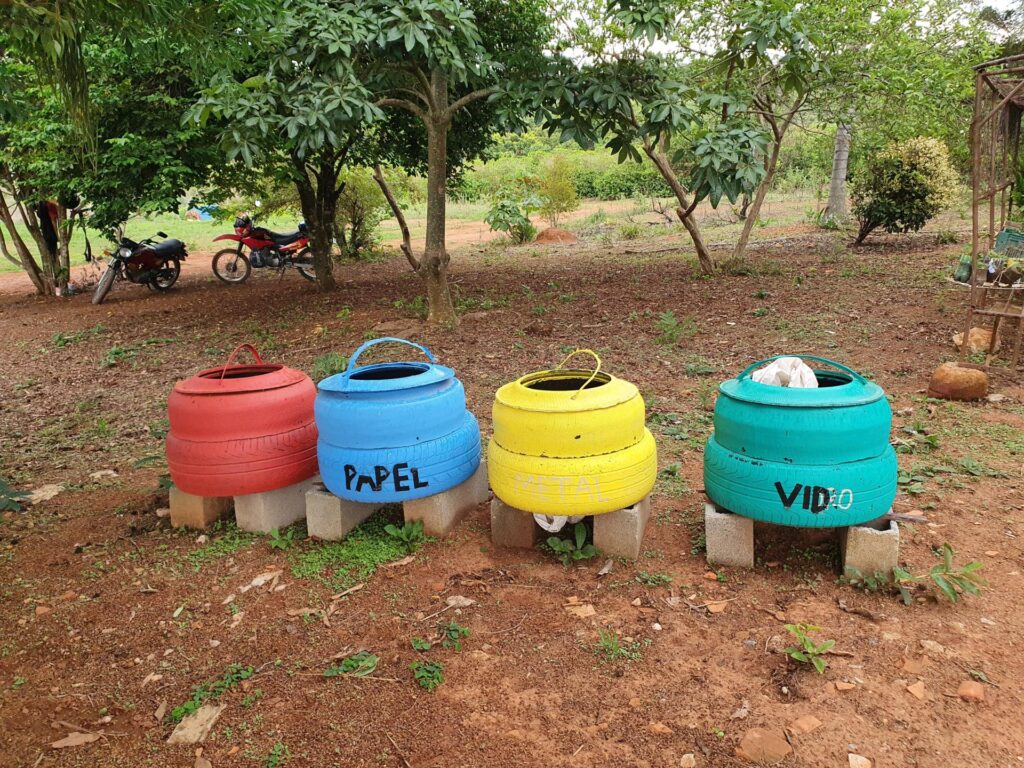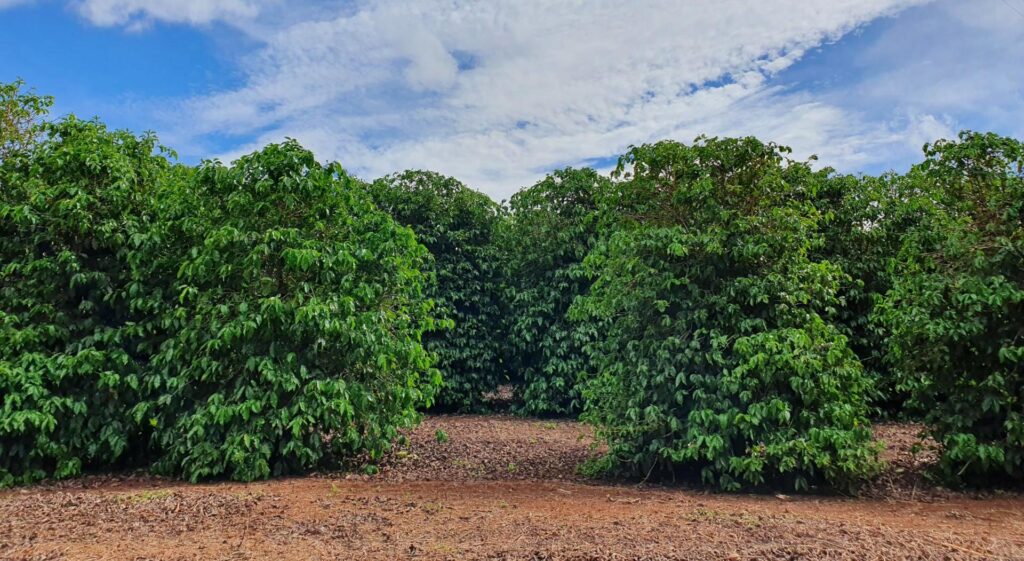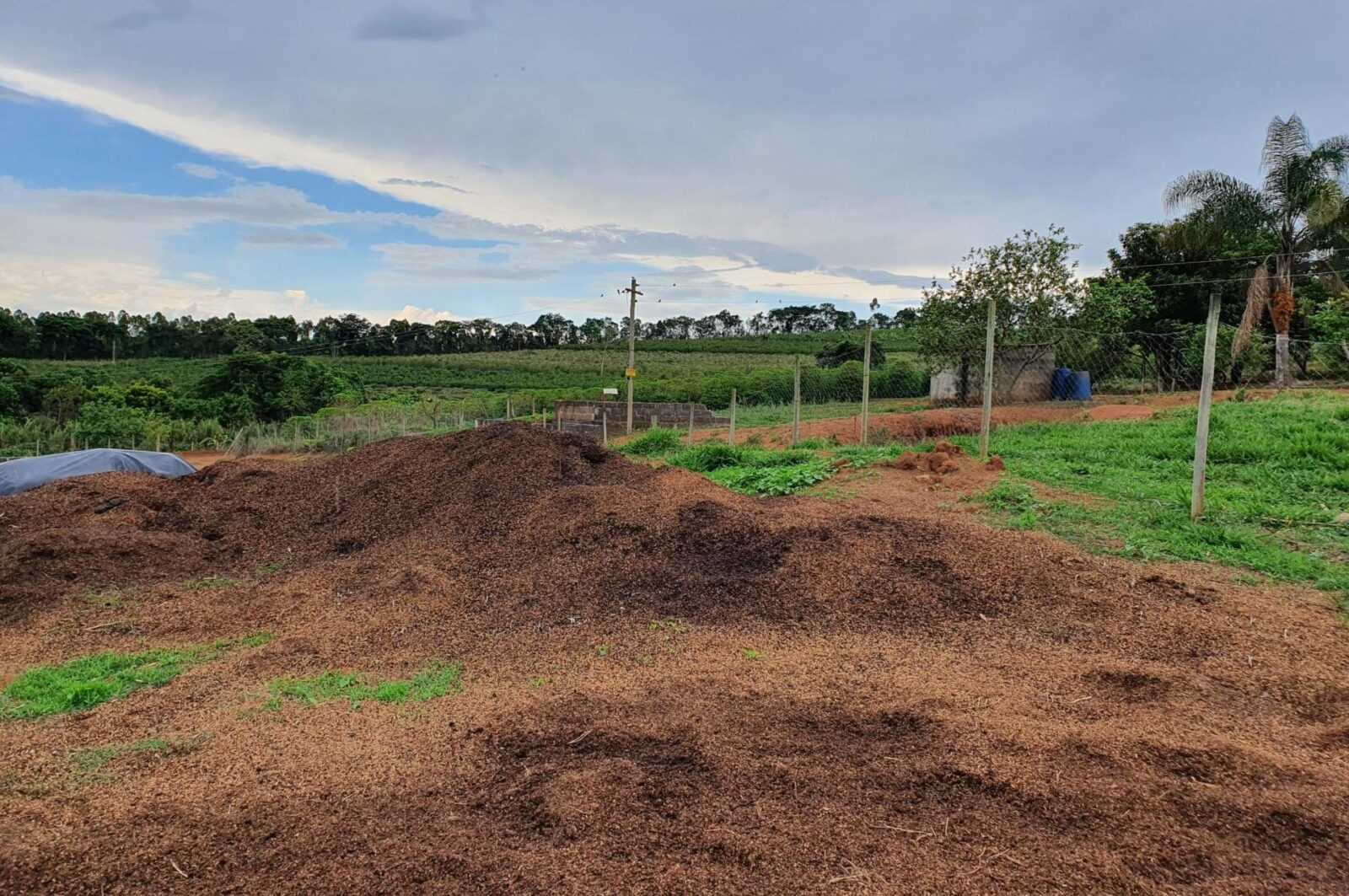HAMBURG, Germany – Organic waste in coffee production is a multi-talent. Used efficiently it supports the productivity of coffee farms, it can help to reduce the use of agrochemicals, protects natural resources and ultimately it carries business opportunities for coffee farmer families. Coffee pulp, waste water from the pulping process, organic waste from pruning and other field activities among others have so far underestimated potentials.
This is also the case for organic waste generated in the roasting and brewing processes like ground coffee. To release these potentials, Hanns R. Neumann Stiftung (HRNS) together with Melitta Group started a new project in Brazil as a develoPPP.de project, co-financed by DEG from funds from the develoPPP.de programme of the German Federal Ministry for Economic Cooperation and Development (BMZ).
The intervention aims to identify possibilities to reuse and recycle organic waste in coffee production. Implemented in the region of Minas Gerais in Brazil, the project unites relevant stakeholders in coffee production: farmer families, farmer organizations, the regional HRNS office, a Melitta roastery, civil society and a renowned university.
They are unified by working together on topics like reducing environmental impact of coffee production, raising efficiency and profitability of coffee farming to develop regional business opportunities by utilizing organic waste.
 For HRNS, it is particularly important that the project combines the responsible use of natural resources and the perspectives for young people. “Circular economy in coffee cultivation offers young people economic potential.
For HRNS, it is particularly important that the project combines the responsible use of natural resources and the perspectives for young people. “Circular economy in coffee cultivation offers young people economic potential.
The profitability of their farms can be increased, for example, by producing organic fertilizers. Furthermore, we see great potential for innovation, which also benefits environmental protection. Steps involved in the appropriate management and treatment of organic matter as farm waste can also be performed by micro-enterprises in producing regions, offering additional employment opportunities for rural youth,” says Michael Opitz, Managing Director of Hanns R. Neumann Stiftung.
For Melitta as international coffee company it is important to contribute to solutions to the challenges in the coffee sector, says Stefan Dierks, Director Sustainability at Melitta Group: “We believe that with this commitment we will find holistic solutions to the manifold ecological and economic challenges. Ideally, we manage, for example, to significantly reduce the use of artificial fertilizers in coffee cultivation and optimize the carbon balance of production systems. We are envisioning to share such valuable knowledge gains with other actors in the sector, too.”
 Currently an extensive analysis of the status quo is underway and all relevant stakeholders in the project region and the coffee supply chain were identified and sensitized to the project idea. With a Community of Practice a collaborative learning platform has been created, in which all stakeholders learn from each other, exchange experiences and develop activities on recycling and reuse of resources.
Currently an extensive analysis of the status quo is underway and all relevant stakeholders in the project region and the coffee supply chain were identified and sensitized to the project idea. With a Community of Practice a collaborative learning platform has been created, in which all stakeholders learn from each other, exchange experiences and develop activities on recycling and reuse of resources.
With the support of Waste Management Experts from the Federal University de Lavras (UFLA), various options for improved waste management for recyclable organic waste will be identified. Together with local smallholder farming families and farmer organizations, the Melitta roastery team and other stakeholders throughout the coffee supply chain the results and findings will be put into practice and continuously developed further. Regional youth will be supported to establish innovative start-ups using the knowledge on approaches and practices of circular economy generated by the project.
“Circular economy in coffee production is carrying huge possibilities for both coffee farming families, the environment and the coffee sector as a whole. That is why for us at HRNS this project is an important complement to activities supporting livelihoods in coffee producing communities and a great starting point to give this topic more relevance in our global operations”, says Opitz.
The project is planned for three years and will be completed in May 2023. Implementation could be put into practice so far despite the COVID-19 pandemic, following clear protocols and methods to adapt to the situation.















